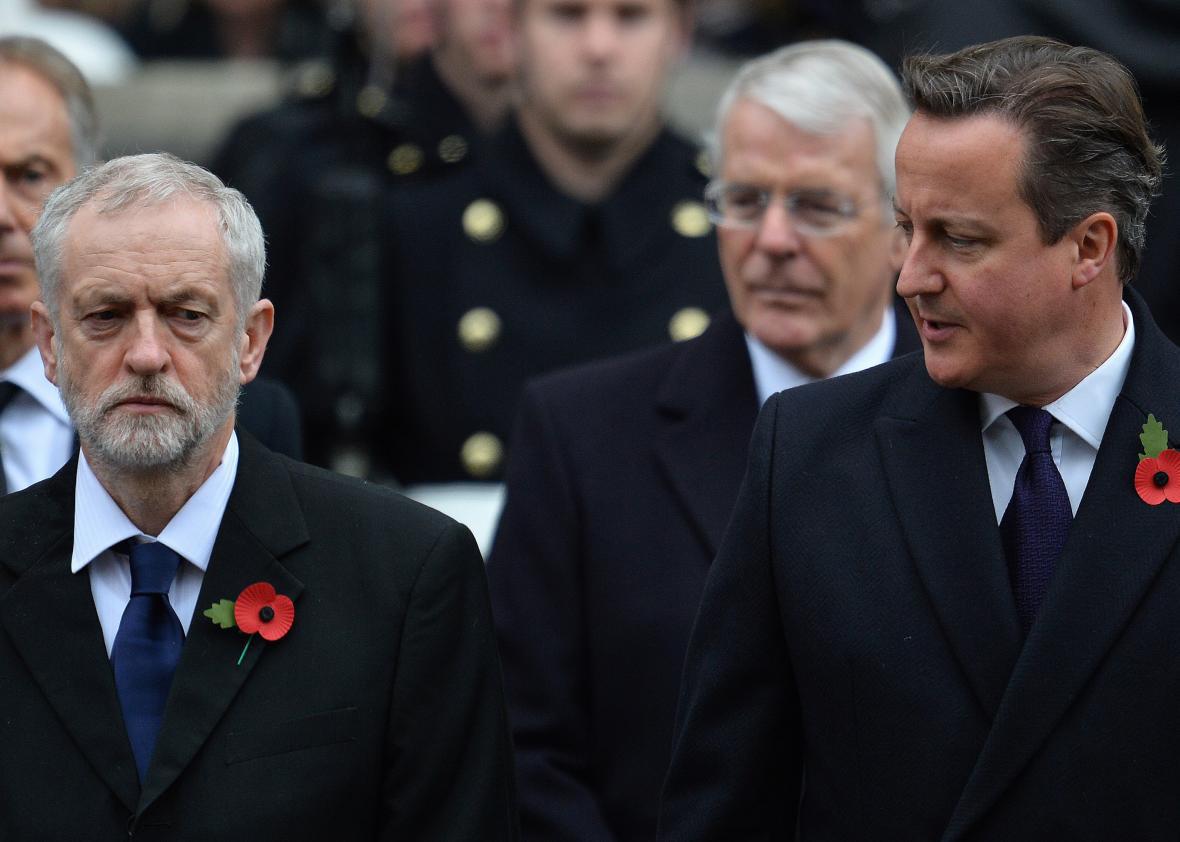Britain is on the verge of joining the increasingly crowded war in Syria with Parliament set to vote on expanded airstrikes against ISIS on Wednesday. While the Royal Air Force has been carrying out airstrikes in Iraq for more than a year, Parliament has been reluctant to authorize strikes in Syria.
Calling the vote is a high-stakes gamble for Prime Minister David Cameron, who lost a House of Commons vote in 2013 over authorizing airstrikes against Bashar al-Assad’s regime. And just a few weeks ago, Cameron called off a planned vote on anti-ISIS strikes in Syria, believing he didn’t have the support.
But things have changed since the attacks in Paris, and Cameron now seems overwhelmingly likely to win. This is because Labour Party leader Jeremy Corbyn—who strongly opposes airstrikes—gave his MPs a “free vote” on the decision, meaning he won’t instruct them on what position to take. While the ruling Conservative Party is firmly in support of strikes in Syria, the issue has divided Labour. Corbyn has argued that airstrikes will do little to defeat ISIS while causing more chaos and civilian casualties and that Western countries should instead focus on finding a diplomatic solution to the war in Syria. Cameron and his allies argue that Britain can’t “subcontract” its security to other countries.
The Paris attacks seem to have had less of an impact on the British public, which has narrowly supported airstrikes in Syria for some time, than their leaders, many of whom have overcome their doubts about entering the messy Syrian conflict. (About 59 percent of the British public supports airstrikes in Syria, according to a recent YouGov poll.)
British involvement will be welcomed in Washington. While President Obama has touted the fact that he has “mobilized 65 countries to go after ISIL,” some of those countries are participating more than others, and most aren’t really doing much. As the New York Times noted Monday, the U.S. has carried out two-thirds of the strikes in Iraq and 95 percent of the strikes in Syria. Only Australia, Canada, France and Jordan have joined the air campaign in Syria, and Canada is backing out following the election of Justin Trudeau. Russia, of course, is carrying out its own parallel intervention in Syria with different goals and targets. While France has stepped up its participation since the Paris attacks and Britain seems likely to join in soon, Obama’s grand coalition against ISIS is still looking an awful lot like a “coalition of the willing.”
